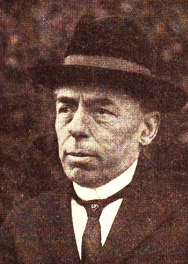Josep Comas I Solà on:
[Wikipedia]
[Google]
[Amazon]
 Josep Comas i Solà (;
Josep Comas i Solà (;
Josep Comas i Solà at astrogea.org
1915: Descubrimiento del primer asteroide por científicos españoles
José Comas y Solá, un barcelonés con estrella
Vil·la Urània de Josep Comas i Solà
{{DEFAULTSORT:Comas i Sola, Josep 1868 births 1937 deaths 20th-century Spanish astronomers Astronomers from Catalonia Discoverers of asteroids Discoverers of comets Scientists from Barcelona 19th-century Spanish astronomers
 Josep Comas i Solà (;
Josep Comas i Solà (; Barcelona
Barcelona ( ; ; ) is a city on the northeastern coast of Spain. It is the capital and largest city of the autonomous community of Catalonia, as well as the second-most populous municipality of Spain. With a population of 1.6 million within c ...
17 December 1868 – 2 December 1937) was a Spanish ( Catalan) astronomer, discoverer of minor planet
According to the International Astronomical Union (IAU), a minor planet is an astronomical object in direct orbit around the Sun that is exclusively classified as neither a planet nor a comet. Before 2006, the IAU officially used the term ''minor ...
s, comet
A comet is an icy, small Solar System body that warms and begins to release gases when passing close to the Sun, a process called outgassing. This produces an extended, gravitationally unbound atmosphere or Coma (cometary), coma surrounding ...
s, and double stars
In observational astronomy, a double star or visual double is a pair of stars that appear close to each other as viewed from Earth, especially with the aid of optical telescopes.
This occurs because the pair either forms a binary star (i.e. a ...
.
He wrote his first astronomy notes at the age of ten, and was only fifteen when he published an article in a French specialist magazine.Baedeker's Barcelona Peter M. Nahm, Automobile Association (Great Britain) - 1992 "Josep Comas i Solà (1868–1937) Born in Barcelona, Josep Comas i Sola soon made his mark as an astronomer; he was only fifteen when he published an article in a French specialist magazine. "
He observed planets including Mars
Mars is the fourth planet from the Sun. It is also known as the "Red Planet", because of its orange-red appearance. Mars is a desert-like rocky planet with a tenuous carbon dioxide () atmosphere. At the average surface level the atmosph ...
and Saturn
Saturn is the sixth planet from the Sun and the second largest in the Solar System, after Jupiter. It is a gas giant, with an average radius of about 9 times that of Earth. It has an eighth the average density of Earth, but is over 95 tim ...
, measuring the rotation period of the latter. He wrote some books popularizing astronomy, and was first president of the Spanish and American Astronomical Society (; S.A.D.E.Y.A.). He discovered the periodic comet
A comet is an icy, small Solar System body that warms and begins to release gases when passing close to the Sun, a process called outgassing. This produces an extended, gravitationally unbound atmosphere or Coma (cometary), coma surrounding ...
32P/Comas Solà, and co-discovered the non-periodic comet C/1925 F1 (Shajn-Comas Solà); he is also credited by the Minor Planet Center
The Minor Planet Center (MPC) is the official body for observing and reporting on minor planets under the auspices of the International Astronomical Union (IAU). Founded in 1947, it operates at the Smithsonian Astrophysical Observatory.
Funct ...
with the discovery of 11 asteroids during 1915–1930. Comas i Solà is also credited with the discovery of the double star SOL 1.
In 1905, Solà received the Prix Jules Janssen
The Prix Jules Janssen is the highest award of the Société astronomique de France (SAF), the French astronomical society.
This annual prize is given to a professional French astronomer or to an astronomer of another nationality in recognition ...
, the highest award of the Société astronomique de France
The Société astronomique de France (SAF; ), the France, French astronomical society, is a non-profit association in the public interest organized under French law (Association loi de 1901). Founded by astronomer Camille Flammarion in 1887, its ...
, the French astronomical society. In 1908 he claimed to observe limb darkening of Saturn's moon Titan
Titan most often refers to:
* Titan (moon), the largest moon of Saturn
* Titans, a race of deities in Greek mythology
Titan or Titans may also refer to:
Arts and entertainment
Fictional entities
Fictional locations
* Titan in fiction, fictiona ...
, the first evidence that the body had an atmosphere. He was the head of Fabra Observatory
The Fabra Observatory (, ; obs. code: 006) is an astronomical observatory located in Barcelona, Catalonia, Spain pointed towards the south at 415 metres above sea level (latitude: 41,4184° N; longitude: 2,1239° E).
It was established in 1904 ...
since it was established in 1904.
The asteroids 1102 Pepita (from his nickname ''Pepito'') and 1655 Comas Solà are named after him, as is Comas Sola crater on Mars.
References
External links
Josep Comas i Solà at astrogea.org
1915: Descubrimiento del primer asteroide por científicos españoles
José Comas y Solá, un barcelonés con estrella
Vil·la Urània de Josep Comas i Solà
{{DEFAULTSORT:Comas i Sola, Josep 1868 births 1937 deaths 20th-century Spanish astronomers Astronomers from Catalonia Discoverers of asteroids Discoverers of comets Scientists from Barcelona 19th-century Spanish astronomers